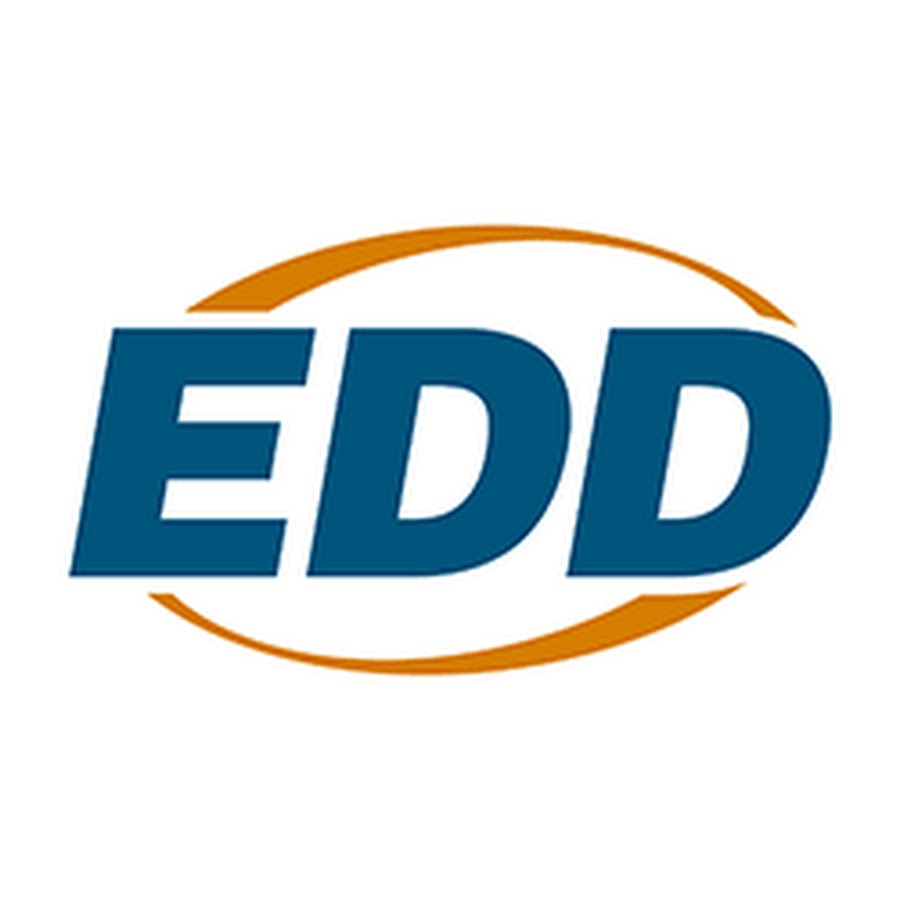
EDD returned mail. (Photo: CA State Auditor)
Is the California EDD Pulling a Pandemic Scam?
Agency to borrow more fed money even as state businesses pay more taxes to cover its debt
By Thomas Buckley, June 30, 2023 8:23 am
Despite already owing the federal government billions, and despite state businesses already paying a surcharge to cover that debt, the Employment Development Department (EDD) will be borrowing even more federal money to cover costs for the foreseeable future.
In other words, the additional tax money supposedly being paid to cover the debt caused by the pandemic and the related fraud is not actually doing that and will not do so for some time. Instead, the moment those extra dollars are used to pay down the debt they will be borrowed back by the EDD.
That means the current EDD unemployment insurance (UI) trust fund debt of $17.6 billion dollars will grow to about $20.3 billion by the end of 2024, despite the extra $1.2 billion dollars in extra taxes, according to the agency’s May UI Fund Forecast released today.
And that’s because the EDD expects to pay out about $2.6 billion in benefits and overhead than it will get in the next two years.
The EDD’s forecast could mean that California employers will end up paying an extra $1,500 or so total per employee over the next decade or so. The rate increases each year – this year it’s $21 and it will increase by $21 per year (plus additional increases starting in a few years)until it hits $420 per year per employee, which it will almost certainly do.
Originally, the EDD had estimated it would take only seven years to pay the debt and end the ever-growing surcharge on businesses; based on the latest forecast, any reasonable assessment would now push that window out to at least 10, possibly up to 15 years (N.B – I don’t know why I just thought of high speed rail…)
As the debt will grow over the next few years, the money meant to pay it down will not do so until the surcharge income rises high enough to actually exceed the borrowing. That debt, by the way, can exist for as long as the EDD wants to keep borrowing.
Seriously.
Imagine a credit card without a limit or payment schedule that you can “pay down” when you feel like it with extra money from other people and still keep getting credit line increases whatever you want.
Or taxing Peter to pay Paul and then getting Paul to give you the money back to pay Patrick.
According to the federal regulations governing the program (the feds will backstop any state fund without question to make sure unemployment benefits get paid) this circular taxation is legal, though it is highly doubtful that when it was created that it was envisioned that any state would collect money to pay its debt and then purposefully grow its debt to pay its bills.
It should be noted that even without the pandemic-related $20 or so billion in debt, the EDD would still have to borrow money for at least the next two years.
For its part, the EDD chose not to comment on the ethical and/or unapproved back-door tax implications of its plan but it did note that the state’s current UI taxing system is out-of-date.
“California’s UI financing system has not changed since 1984. Employers pay for unemployment benefits to former employees through contributions made to the state’s UI Trust Fund on behalf of every employee. California’s taxable wage ceiling of $7,000 and maximum tax rate of 5.4 percent are the lowest allowed under federal law. Senate Bill 600 [Chapter 1146, Statutes of 1989] and Senate Bill 40 [Chapter 409, Statutes of 2001] increased benefit amounts, but did not address the financing structure to increase revenue,” said the agency. “The unprecedented number of workers who collected benefits in the recent pandemic, along with those who collected during the Great Recession, impacted the ability of an outdated financing system to generate enough revenue needed to pay benefits.”
Starting in 2024, the disability insurance program – operated separately by the EDD and currently solvent – will remove its “taxable wage ceiling,” in part to pay for things like expanded paid family leave. Whether or not the legislature and governor will move to change the UI wage ceiling – at least in part as a response to the debt issue – is as yet unclear. It is also not known if such a move would increase the surcharge being paid (let alone the regular tax.)
The Governor’s Office did not reply to a request for comment, including on why California was one of the very few states to not use its “left over” pandemic relief funds to pay off the debt in its entirety last year when it had a massive budget surplus and whether or not this debt “payment/not repayment” shell game was entered into purposefully to relieve some of the current budgetary pressures (or at least not cause any more.)
(Note – as per Globe practice, all of the questions asked of the Governor’s Office are listed at the end of this article.)
Jon Coupal, head of the Howard Jarvis Taxpayers Association, said the scheme is “more evidence of the abject fiscal irresponsibility of California’s state government.”
While the extra UI charges are called a “surcharge” and are theoretically temporary, they are “from the perspective of the businesses an additional tax” – a tax that did not have to go through the typical legislative process.
In other words – no vote, no discussion, no input – just an imposed tax.
“The California Chamber of Commerce is very disappointed with and greatly concerned the UI insolvency will cause an on-going tax increase,” said Chamber policy expert Rob Moutrie. “California businesses need tax relief, not an increase.”
The technologically archaic and consistently inept EDD was not just overwhelmed by the pandemic but made the situation worse by not having any anti-fraud security measures in place. In fact, it took months for then-California Labor Secretary Julie Su to address the issue and by that time tens of billions had already been looted. Security experts estimate that if Su – who was fully aware of the problem, according to a state auditor’s report – had acted when she became aware of the problem the EDD would have exactly zero federal debt.
For perspective, the EDD, under Su, lost about $40 billion to fraud and other improper payments while the federal pandemic debt created was about half that number.
Despite her disastrous tenure as California’s labor secretary, Su is currently being considered to become the federal Secretary of Labor. Her Senate confirmation process has, however, seemed to hit a snag as not every Democrat will commit to voting for her, in part because of this exact issue.
“It’s an incompetence tax: a price private citizens are being forced to pay for their government’s failures,” said Rep. Kevin Kiley (R-Rocklin) who has led the charge against Su on the House side of the Capitol. “The predicament that small businesses in California now find themselves in—facing additional taxation to make up for the government’s negligence—is another example of why Julie Su’s nomination to be our nation’s next labor secretary is so ill-considered.”
StandAgaintSu, a national group working to derail her nomination, said the current debt situation is exactly why Su should not be the new Labor Secretary.
“Julie Su’s nomination for Secretary of Labor is a slap in the face to the millions of hard-working Californians who will be forced to spend years paying off her forty-billion-dollar mistake,” said a Stand AgainstSu spokesperson. “No Senator who respects American workers could ever reward Su’s failure with a vote in her favor.”
A vote on Su’s four-month-old nomination quest will not even be scheduled until at least late next…if at all.
Oh, and as of midnight last night, California owed $17,634,404,674.57 in principal and $223,357,689.50 in interest. In June alone, it has borrowed $492,235,804.09 – that equals $203 per second, up from $139 per second in May.
California has also increased it share of the national total remaining outstanding in pandemic unemployment debt to 72% from 70% (New York has almost all of the rest) about two weeks ago.
National leader indeed.
As promised, the questions asked the Governor’s Office:
-Why did California not do what almost every other state did and use “left over” pandemic funds to repay the debt? There was more than enough to do so and it was legal.
-Is it ethical for the state to burden businesses with additional taxes to cover a failure of the state itself, i.e. the extremely preventable fraud loss (or at least 80 percent of it)?
-As the edd cannot cover its current bills using just the UI tax, will the governor be proposing any new taxes and/or modifications to the income matrix? (a la sb951)
-Is this an intentional act by the administration and/or edd to impose said tax increase without triggering any legislative and/or executive action?
-Is using the mandatory fed surcharge to pay regular bills an end-run tax without legislative approval?
edduiforecastmay23- Benefit Fraud Problems and Solutions - November 7, 2024
- A Little Exit Poll - November 5, 2024
- Tomorrow’s Headlines Today! - November 5, 2024





EDD is a captured state agency of the corrupt Democrat criminal cabal and scams are to be expected?
The abject level of COMPLETE INCOMPETENCE actually sounds like the reason that Julie Su is PERFECT for the Biden “Administration”….
They are like “The Addams Family” of pResidential “administrations” – a collection of freaks and losers who can crash the American economy in one (s)election cycle, so their puppet masters can introduce their “Build Back Better” Agenda 2030 initiatives and their central bank digital currencies, to finally enslave all of us to their social credit monitoring programs….
Su sent the money to the precinct captains to assure Gavin would beat the recall!
Remember he called it a win, 10 minutes after the polls closed!
A job well done deserves a promotion wouldn’t you think?
TJ and Tomorrow say it in a concise way the reason for the “mismanagement”, Tammany Hall style political patronage at the service of electioneering to keep the pigs at the trough